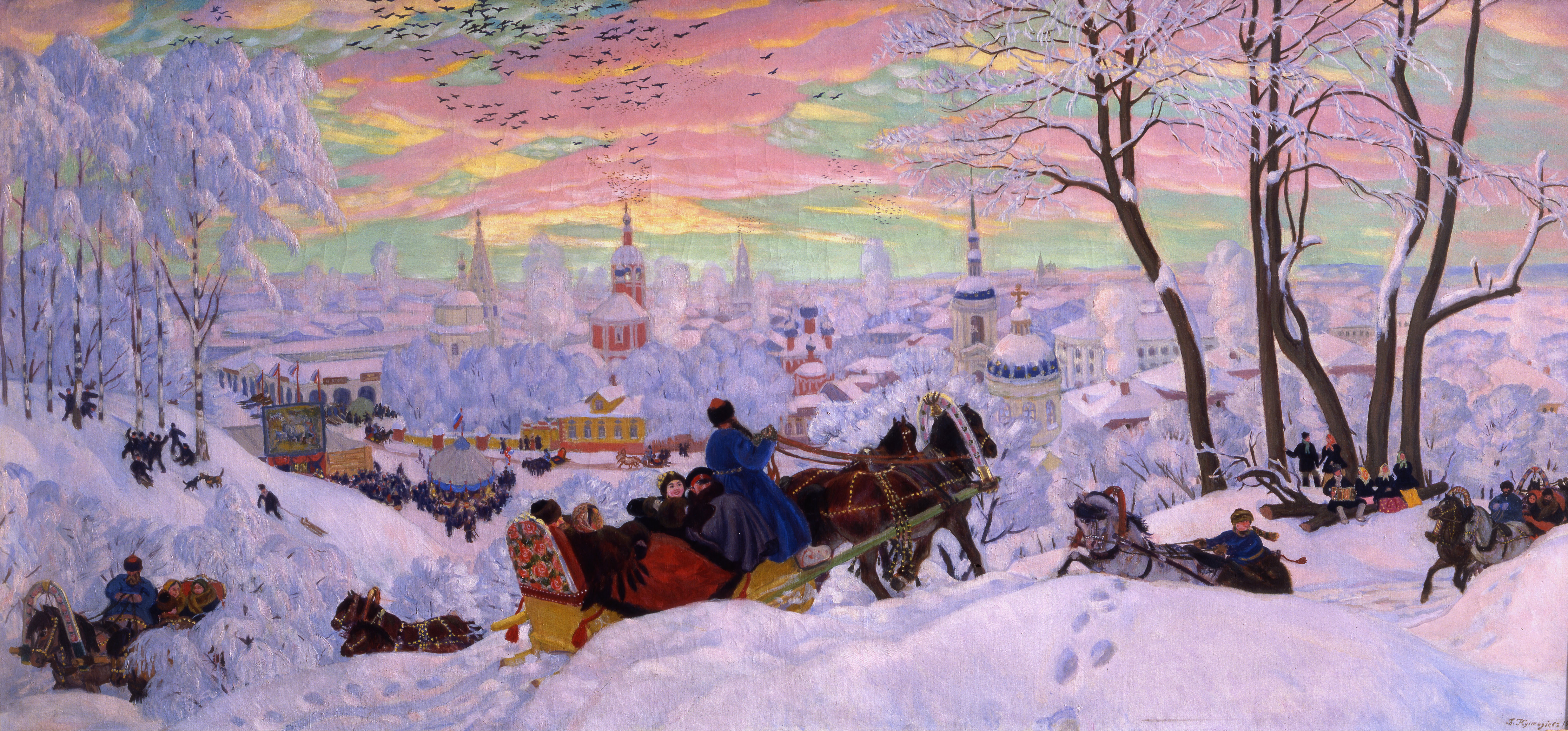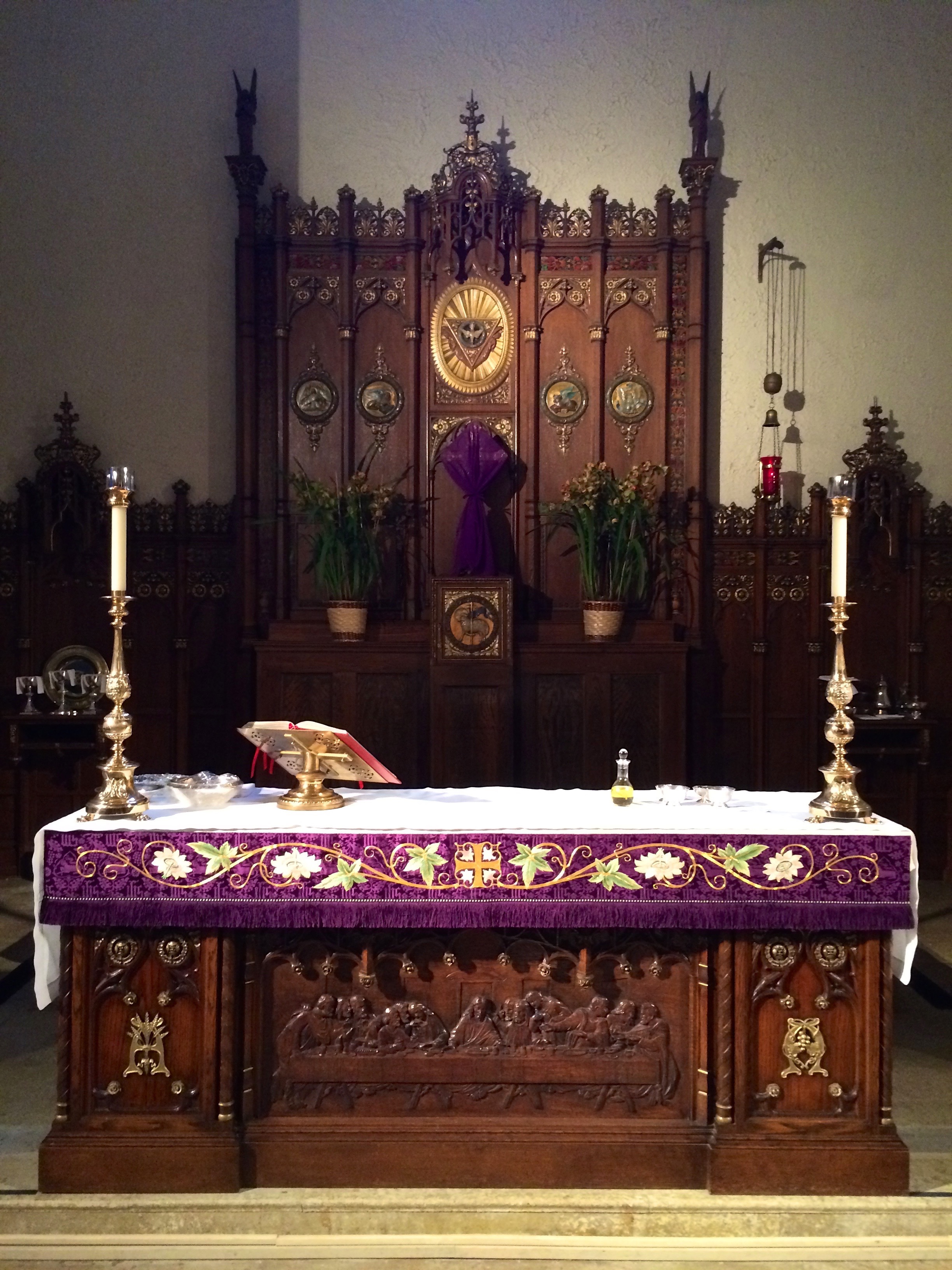|
Shrovetide
Shrovetide is the Christian liturgical period prior to the start of Lent that begins on Shrove Saturday and ends at the close of Shrove Tuesday. The season focuses on examination of conscience and repentance before the Lenten fast. It includes Shrove Saturday, Shrove Sunday, Shrove Monday and Shrove Tuesday. During Shrovetide, Christians traditionally eat rich foods containing meat, eggs, dairy products, and alcohol, using up the ingredients as these things are not enjoyed during the 40-day fasting season of Lent. This practice continues in Eastern Christianity and among Western Christian congregations practicing the Daniel Fast. Etymology The expression "Shrovetide" comes from the word '' shrive'', referring to the receiving of absolution following confession. Observances The Shrovetide season focuses on examination of conscience and repentance before the Lenten fast. As such, during Shrovetide, many traditional Christians, such as Roman Catholics, Lutherans and A ... [...More Info...] [...Related Items...] OR: [Wikipedia] [Google] [Baidu] |
Shrove Tuesday
Shrove Tuesday (also known as Pancake Tuesday or Pancake Day) is the final day of Shrovetide, which marks the end of the pre-Lenten season. Lent begins the following day with Ash Wednesday. Shrove Tuesday is observed in many Christian state, Christian countries through participating in Confession (religion)#Christianity, confession, the ritual burning of the previous year's Holy Week palms, finalizing one's Lenten sacrifice, as well as eating pancakes and other sweets. Shrove Tuesday is observed by many Christians, including Anglicans, Lutherans, Methodists, Western Orthodox, Western-rite Orthodox Christians, and Roman Catholics, who "make a special point of self-examination, of considering what wrongs they need to repent, and what amendments of life or areas of spiritual growth they especially need to ask God's help in dealing with." This moveable feast is determined by date of Easter, the date of Easter. The expression "Shrove Tuesday" comes from the word ''wikt:en:shrive, shr ... [...More Info...] [...Related Items...] OR: [Wikipedia] [Google] [Baidu] |
Lent
Lent (, 'Fortieth') is the solemn Christianity, Christian religious moveable feast#Lent, observance in the liturgical year in preparation for Easter. It echoes the 40 days Jesus spent fasting in the desert and enduring Temptation of Christ, temptation by Satan, according to the Gospels of Gospel of Matthew, Matthew, Gospel of Mark, Mark and Gospel of Luke, Luke, before beginning his Ministry of Jesus, public ministry. Lent is usually observed in the Catholic Church, Catholic, Lutheranism, Lutheran, Moravian Church, Moravian, Anglican Communion, Anglican, United and uniting churches, United Protestant and Eastern Orthodoxy, Orthodox Christian traditions, among others. A number of Anabaptism, Anabaptist, Baptists, Baptist, Methodism, Methodist, Calvinism, Reformed (including certain Continental Reformed Protestantism, Continental Reformed, Presbyterianism, Presbyterian and Congregational church, Congregationalist churches), and Nondenominational Christianity, nondenominational Ch ... [...More Info...] [...Related Items...] OR: [Wikipedia] [Google] [Baidu] |
Quinquagesima
Quinquagesima (), in the Western Christian Churches, is the last pre-Lenten Sunday, being the Sunday before Ash Wednesday, and the first day of Carnival (also known as Shrovetide). It is also called Quinquagesima Sunday, Quinquagesimae, Estomihi, Shrove Sunday, Pork Sunday, or the Sunday next before Lent. Being the Lord's Day before the start of the Lenten season, it is known for meat consumption as people feast before starting their fast on Ash Wednesday, the first day of Lent. Historically Lutheran countries such as Denmark mark Quinquagesima Sunday as the peak of the Fastelavn. After attending the Divine Service on Shrove Sunday, congregants enjoy Shrovetide buns (fastelavnsboller). Children often dress up and collect money from people while singing. Christians in these nations carry Shrovetide rods (fastelavnsris), which "branches decorated with sweets, little presents, etc., that are used to decorate the home or give to children." In the Revised Common Lectionary the ... [...More Info...] [...Related Items...] OR: [Wikipedia] [Google] [Baidu] |
Shrove Monday
Shrove Monday (also known as Collopy Monday, Rose Monday, Merry Monday or Hall Monday) is part of the Shrovetide or Carnival observances and celebrations of the week before Lent, following Quinquagesima or Shrove Sunday and preceding Shrove Tuesday or Mardi Gras. Shrovetide The word ''shrove'' is the past tense of the English verb ''shrive'', which means to give absolution for someone's sins by way of Confession (religion), confession and forgiveness. Thus Shrovetide gets its name from the shriving that English Christians were expected to do prior to receiving absolution immediately before Lent begins. Shrove Tuesday is the last day of "shrovetide", somewhat analogous to the ''Carnival'' tradition that developed separately in countries of Romance-speaking Europe, Latin Europe. The terms "Shrove Monday" and "Shrove Tuesday" are no longer widely used in the United States or Canada outside of liturgical traditions, such as in the Lutheran, Anglican, and Roman Catholic Churches. Col ... [...More Info...] [...Related Items...] OR: [Wikipedia] [Google] [Baidu] |
Palm Branch
The palm branch, or palm frond, is a symbol of victory, triumph, peace, and eternal life originating in the ancient Near East and Mediterranean world. The palm ''(Phoenix (plant), Phoenix)'' was sacred in Mesopotamian religions, and in ancient Egyptian religion, ancient Egypt represented immortality. In Judaism, the lulav, a closed wikt:frond, frond of the date palm is part of the Three Pilgrimage Festivals, festival of Sukkot. A palm branch was awarded to victorious athletes in ancient Greece, and a palm frond or the tree itself is one of the most common attributes of Victoria (mythology), Victory personified in ancient Rome. In Christianity, the palm branch is associated with Jesus' Triumphal entry into Jerusalem, Triumphal Entry into Jerusalem, celebrated on Palm Sunday, when the Gospel of John says of the citizens, "they took palm branches and went out to meet Him" (12:13 HCSB). Additionally, the palm has meaning in Christian symbolism, Christian iconography, representing vic ... [...More Info...] [...Related Items...] OR: [Wikipedia] [Google] [Baidu] |
Palm Sunday
Palm Sunday is the Christian moveable feast that falls on the Sunday before Easter. The feast commemorates Christ's triumphal entry into Jerusalem, an event mentioned in each of the four canonical Gospels. Its name originates from the palm branches waved by the crowd to greet and honor Jesus Christ as he entered the city. Palm Sunday marks the first day of Holy Week; in Western Christianity, this is the beginning of the last week of the solemn season of Lent, preceding Eastertide, while in Eastern Christianity, Holy Week commences after the conclusion of Great Lent. In most Christian rites, Palm Sunday is celebrated by the blessing and distribution of palm branches (or the branches of other native trees), representing the palm branches that the crowd scattered before Christ as he rode into Jerusalem. These palms are sometimes woven into Christian cross, crosses. The difficulty of procuring palms in unfavorable climates led to the substitution of branches of native trees, includi ... [...More Info...] [...Related Items...] OR: [Wikipedia] [Google] [Baidu] |
Christian Prayer
Christian prayer is an important activity in Christianity, and there are several different forms used for this practice. Christian prayers are diverse: they can be completely spontaneous, or read entirely from a text, such as from a breviary, which contains the canonical hours that are said at fixed prayer times. While praying, certain gestures usually accompany the prayers, including folding one's hands, Bowing#Christianity, bowing one's head, kneeling (often in the kneeler of a pew in corporate worship or the kneeler of a prie-dieu in private worship), and Prostration#Christianity, prostration. The most prominent prayer among Christians is the Lord's Prayer, which according to the gospel accounts (e.g. wikisource:Bible (American Standard)/Matthew#6:9, Matthew 6:9-13) is how Jesus in Christianity, Jesus taught his Disciple (Christianity), disciples to pray. The injunction for Christians to pray the Lord's Prayer thrice daily was given in ''Didache'' 8, 2 f., which, in turn, was ... [...More Info...] [...Related Items...] OR: [Wikipedia] [Google] [Baidu] |
Lenten Sacrifice
A Lenten sacrifice is a spiritual practice where Christians, particularly Catholics, Lutherans, Anglicans, Methodists, Moravians and the United Protestants voluntarily renounce a pleasure or luxury during the observance of Lent, which begins on Ash Wednesday. The tradition of Lent has its roots in Jesus Christ praying and fasting for forty days in the desert according to the gospels of Matthew, Mark and Luke. When Lent is over and Easter Sunday arrives, the faithful are able to indulge in what they sacrificed during the Lenten season. Examples of Lenten sacrifices Common Lenten sacrifices include abstaining from pleasures such as chocolate, sugar, sweets, or soft drinks. Some Christians choose to practice temperance throughout the Lenten season, thus giving up alcoholic beverages; in light of this, temperance drinks experience a surge of popularity during the Lenten season. Others, on the first day of Lent, pledge to give up sinful behaviours, such as using profan ... [...More Info...] [...Related Items...] OR: [Wikipedia] [Google] [Baidu] |
The Baltimore Sun
''The Baltimore Sun'' is the largest general-circulation daily newspaper based in the U.S. state of Maryland and provides coverage of local, regional, national, and international news. Founded in 1837, the newspaper was owned by Tribune Publishing until May 2021, when it was acquired by Alden Global Capital, which operates its media properties through Digital First Media. David D. Smith, the executive chairman of Sinclair Broadcast Group, closed a deal to buy the paper on January 15, 2024. History 19th century ''The Sun'' was founded on May 17, 1837, by Arunah Shepherdson Abell and two associates, William Moseley Swain from Rhode Island, and Azariah H. Simmons from Philadelphia, where they had started and published the '' Public Ledger'' the year before. Abell became a journalist with the ''Providence Patriot'' and later worked with newspapers in New York City and Boston.Van Doren, Charles and Robert McKendry, ed., ''Webster's American Biographies''. (Springfield, Massa ... [...More Info...] [...Related Items...] OR: [Wikipedia] [Google] [Baidu] |
Aleteia
''Aleteia'' is an online Catholic Church, Catholic news and information website founded in 2011/2012 by Jesús Colina via the Foundation for Evangelization through the Media. It has the approval of the Pontifical Council for Social Communications and the Pontifical Council for Promoting the New Evangelization. The English site is operated under Editor-in-Chief Fr Peter Cameron, OP. The organization is based in France but operates in different languages and states worldwide. It is distributed in eight languages and editions (English, French, Portuguese, Spanish, Italian, Arabic, Polish and Slovene language, Slovene). References Catholic media Multilingual news services News agencies based in France Catholic websites {{RC-stub ... [...More Info...] [...Related Items...] OR: [Wikipedia] [Google] [Baidu] |
Holy Week
Holy Week () commemorates the seven days leading up to Easter. It begins with the commemoration of Triumphal entry into Jerusalem, Christ's triumphal entry into Jerusalem on Palm Sunday, marks the betrayal of Jesus on Spy Wednesday (Holy Wednesday), climaxing with the commemoration of the Last Supper on Maundy Thursday (Holy Thursday) and the Passion of Jesus on Good Friday (Holy Friday). Holy Week concludes with Christ's Crucifixion of Jesus, death and Harrowing of Hell, descent into hell on Holy Saturday. For all Christian traditions, it is a Moveable feast, moveable observance. In Eastern Christianity, which also calls it Great Week, it is the week following Great Lent and Lazarus Saturday, starting on the evening of Palm Sunday and concluding on the evening of Holy Saturday, Great Saturday. In Western Christianity, Holy Week is the sixth and last week of Lent, beginning with Palm Sunday and concluding on Holy Saturday. Christians believe that Jesus rested in death from the n ... [...More Info...] [...Related Items...] OR: [Wikipedia] [Google] [Baidu] |





